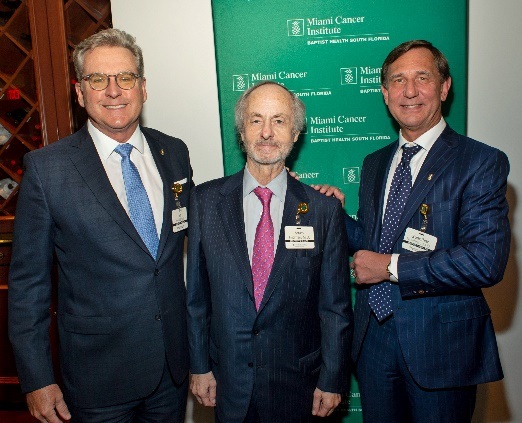March 27, 2020 by John Fernandez
Experts Convene to Share Latest Immunotherapy Advances for Treating Hematologic Malignancies

More than 150 physicians and other healthcare providers from throughout Florida, the United States and Latin America, gathered in Coconut Grove in January to attend the Inaugural Miami Cancer Institute Summit of the Americas on Immunotherapies for Hematologic Malignancies.
The Summit featured experts from the Institute as well as Memorial Sloan Kettering Cancer Center, Dana-Farber Cancer Institute, MD Anderson Cancer Center, University of Chicago, University of Pennsylvania and Florida International University, who discussed the most recent advances in the treatment of leukemia, lymphoma, multiple myeloma and stem cell transplantation by novel immunotherapies and treatment combinations.
“The caliber of our faculty was outstanding and the conference’s overarching approach, incorporating all of the malignancies, rather than focusing on one disease, made it unique,” said Guenther Koehne, M.D., Ph.D., course director and deputy director and chief of Stem Cell Transplantation, Hematologic Oncology and Benign Hematology at the Institute. “To be successful in attacking cancer, we cannot stay within our silos. We must take a more comprehensive view.”
 (Pictured, left to right: Bo Boulenger, Executive Vice President and Chief Operating Officer at Baptist Health South Florida; and Drs. Arturo Fridman and Guenther Koehne.)
(Pictured, left to right: Bo Boulenger, Executive Vice President and Chief Operating Officer at Baptist Health South Florida; and Drs. Arturo Fridman and Guenther Koehne.)
Dr. Koehne also presented his groundbreaking work on allogeneic stem cell transplantation involving the technique he developed to manipulate donor cells in the Institute’s Stem Cell Processing & Immunotherapy Laboratory.
Dr. Koehne is the principal investigator of a recently FDA-approved clinical trial ― A Phase II Trial of CD34+ Enriched Transplants from HLA-Compatible Related or Unrelated Donors for Treatment of Patients with Hematologic Malignancies ― using manipulated donor cells to treat those with acute myeloid and lymphoblastic leukemia and chronic myeloid leukemia.
The study continues his work that has had promising results in diminishing the often-deadly graft-versus host disease complication of transplantation.
Since allogeneic transplants began in the 1970s, survival rates have increased significantly and new techniques, like Dr. Koehne’s, have made it possible for many more patients, especially elderly patients who previously would not have been considered for transplantation, to receive the treatment.
top stories












There are no comments